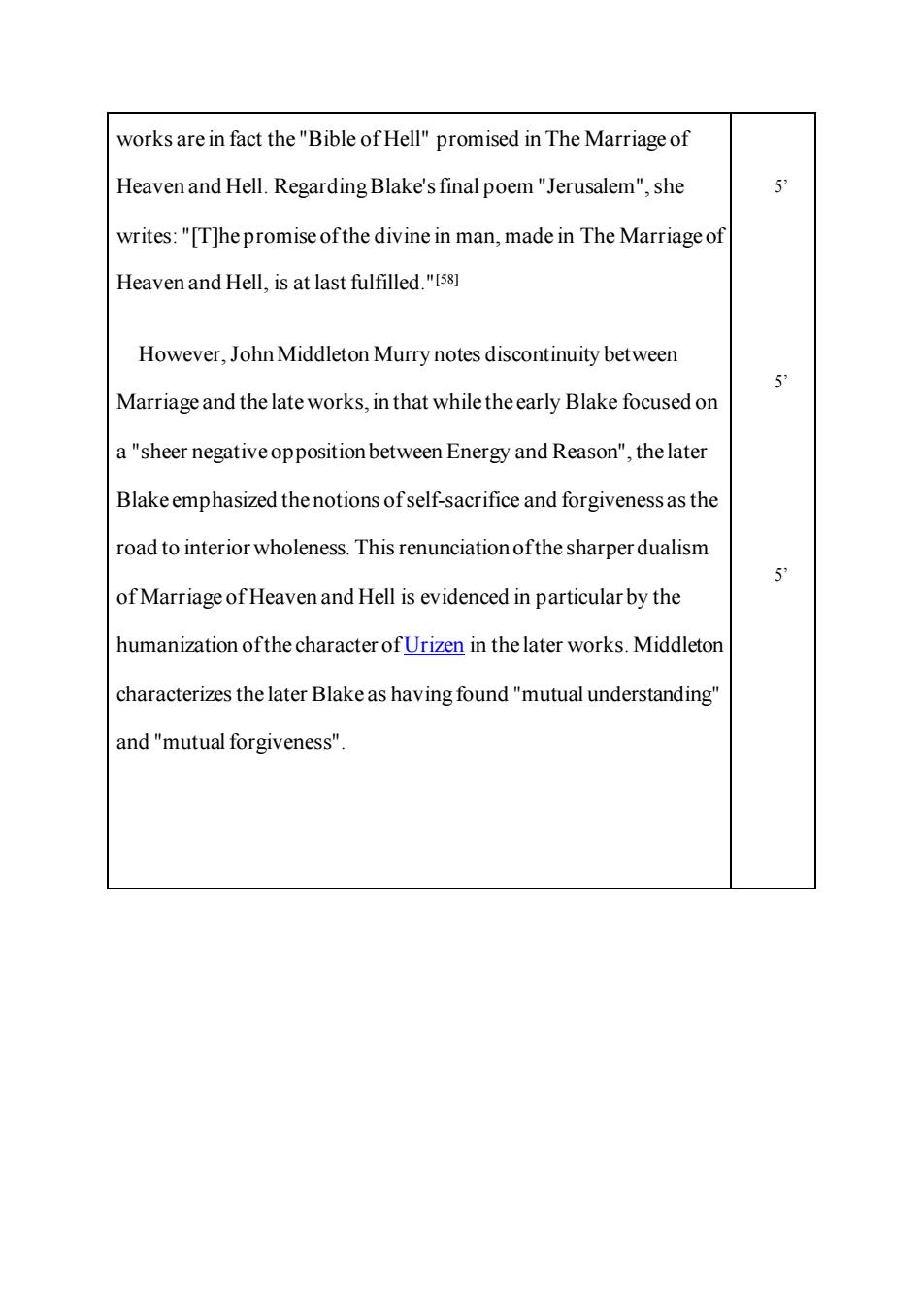正在加载图片...

works are in fact the"Bible of Hell"promised in The Marriage of Heaven and Hell.Regarding Blake's final poem"Jerusalem",she 5 writes:"[T]hepromise ofthe divine in man,made in The Marriage of Heaven and Hell,is at last fulfilled."5 However,John Middleton Murry notes discontinuity between 5 Marriage and the late works,in that while the early Blake focused on a"sheer negativeopposition between Energy and Reason",the later Blake emphasized the notions of self-sacrifice and forgiveness as the oad to interior wholeness.This renunciation ofthe sharper dualism 5 of Marriage of Heaven and Hell is evidenced in particular by the humanization ofthe character ofUrizen in the later works.Middleton characterizes the later Blake as having found"mutual understanding and"mutual forgiveness".works are in fact the "Bible of Hell" promised in The Marriage of Heaven and Hell. Regarding Blake's final poem "Jerusalem", she writes: "[T]he promise of the divine in man, made in The Marriage of Heaven and Hell, is at last fulfilled."[58] However, John Middleton Murry notes discontinuity between Marriage and the late works, in that while the early Blake focused on a "sheer negative opposition between Energy and Reason", the later Blake emphasized the notions ofself-sacrifice and forgiveness as the road to interior wholeness. This renunciation of the sharper dualism of Marriage of Heaven and Hell is evidenced in particular by the humanization of the character of Urizen in the later works. Middleton characterizes the later Blake as having found "mutual understanding" and "mutual forgiveness". 5’ 5’ 5’